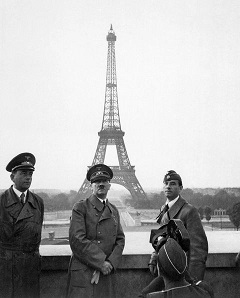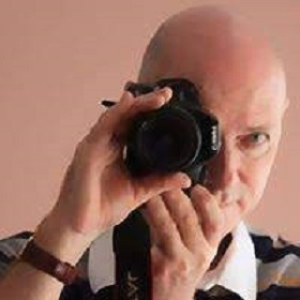Peter MALONE
Welcome Quy BUI and Tien Nguyen:
Welcome Quy BUI and Tien Nguyen:

Peter Hendriks writes: Quy and Tien arrived in Australia last week for a two-week visit. They are here in preparation for the Safeguarding Audit that will take place later this year. As the Vietnam MSC Community is part of the Australian Province, it is also part of the audit that the ACSL will conduct.
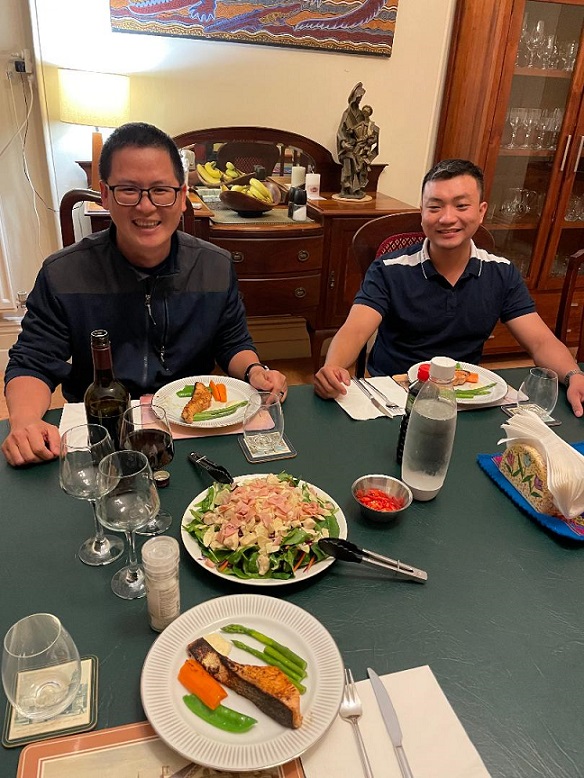
Quy and Tien: Quy and Tien had a full day yesterday on the ACSL Standards—actually, just Standard One all day. They will continue to work their way through this document in the days ahead. They will then move on to other aspects of safeguarding and the impending audit. Fortunately for Stephen and me, they like to relax by cooking! Here is last tonight’s creation.
Australian Catholic Safeguarding Limited conducts audits of Catholic Institutions. Our Province is to be audited in September-October

ACSL has been created to promote and oversee a nationally consistent, comprehensive and sustainable framework for the protection of children and adults at risk within the Church in Australia. We have zero tolerance of abuse and we work to ensure a safe Church for everyone.
The findings of the Royal Commission into Institutional Responses to Child Sexual Abuse place responsibility on the Catholic Church to demonstrate greater respect, care and protection for everyone who places their trust in the Church and to comply with legislative obligations in safeguarding and professional standards.
National Catholic Safeguarding Standards

The National Catholic Safeguarding Standards (NCSS) create a framework for Catholic entities to promote the safety of children and adults at risk.
The NCSS outline the policies and activities that will prevent, respond to, and support reporting of concerns regarding abuse. The Standards work together to ensure that every entity, ministry and organisation across the Catholic Church places the safety of children and adults at risk at the core of how they plan, think and act.
The 10 National Catholic Safeguarding Standards incorporate recommendations from the Royal Commission into Institutional Responses to Child Sexual Abuse and also the National Principles for Child Safe Organisations, contextualising these requirements for the Catholic Church in Australia. The Standards have been adopted by the Catholic Church in Australia.
The first phase in developing the Standards focused on safeguarding practices to protect children. The second phase incorporates care and protection of adults, with a focus on adults at risk, in keeping with the recommendations of the Royal Commission.
And a visual culinary reward for reading thus far!
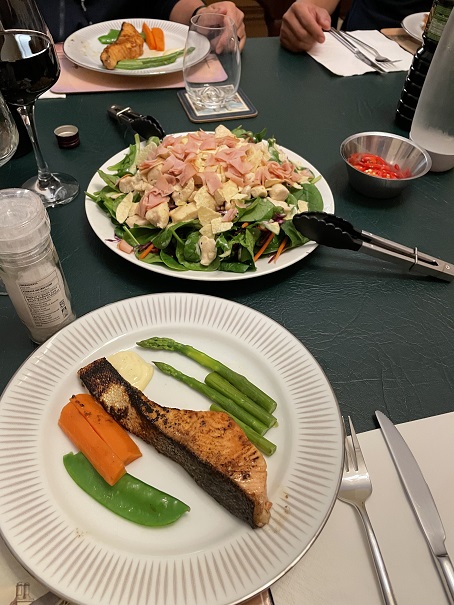
Hit Man/ 2023
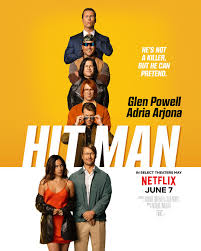
HIT MAN
US, 2023, 115 minutes, Colour.
Glen Powell, Adria Arjona, Austin Amelio, Retta, Sanjay Rao, Molly Bernard, Evan Holtzman.
Directed by Richard Linklater.
With a direct title like Hit Man, we know what to expect. And, the expected happens, but, of course, with some differences.
This is a film by prolific filmmaker for more than 30 years, Richard Linklater, based in Austin, Texas usually, though this time in New Orleans. Linklater was able to explore relationships with his Before Trilogy, trace the development of a child to adolescence over 12 years in Childhood, and is always able to blend comedy with seriousness.
This time, in collaboration with his star, Glen Powell (emerging into prominence with Top Gun Maverick, Anything But You, Twisters), he has gone for offbeat comedy.
Powell is playing a character based on a real-life person (though Linklater emphasises that they have added the murders which didn’t happen in real life!). Gary teaches at the University, an academic who enjoys his work. However, he is also employed by the local police with their work in profiling as well as entrapment of a range of citizens who are searching to employ a hitman. He is open to change his persona, quite inventively, and an enjoyable collage of characters, men and women, old and young, rich and poor, make rendezvous meetings to hire him. Then the collage of them all being arrested, astounded, in prison.
But, this kind of story needs a femme fatale. She arrives in the form of Andrea Arjona, wanting to get rid of her obnoxious husband. Gary is in the character of Ron, tough, reliable hitman, but, he falls for her. Fans of crime writers may be on the alert, especially for film buffs, and though the work of James M.Cain and Raymond Chandler. Chandler adapted Cain’s novel, Double Indemnity, 1944, an archetypal story of the victim of the femme fatale.
This is all interestingly and entertainingly played out, scenes with the aggressive and jealous husband, a colleague of Gary who is not above some blackmail, some very pleasant police officers with integrity, and, then the death of the husband. Whodunnit?
Because of the complications when the wife he is the news of her husband’s death, when Gary has to unmask his hitman facade, will it be a happy ending?
That doesn’t happen in this kind of thing – but, spoiler alert, some unanticipated, surprising happy ever after!
- The title? Expectations?
- The New Orleans setting? Homes, police precincts, college? Clubs, the streets? The musical score?
- The screenplay based on actual characters and events – but the screenplay adding the killings? Stability of the plot, the professor, schools in undercover work, consequences?
- Gary, in class, the students, themes and studies? Is private life? His connection with the police? The set-ups, his skill in reading characters, the arrests?
- The squad, setting up criminals, the variety of settings, the variety of characters, the collage of interviews, Gary and the various characters, the discussions, the entrapment? The consequences?
- The squad, there were, confidence in Gary? Jasper, blowing his cover? Calling in Gary, setting up the character of Ron? Diffidence, his success, the performances, the affirmation? Jasper and his surliness?
- The situation with Madison, his character, Ron, the meeting, listening to her, falling for her, her story? Giving her advice? The relationship? His cover? Do with her husband, the issue of divorce, his manic aggression, hatred for Madison?
- The irony of his contacting Gary for a killer against Madison? The revelation? Jasper and his encounter, something of the situation, action, blackmail?
- Madison falling in love with Ron, reaction to his being Gary? The death of her husband, Gary and his suspicions? The squad, the pressure on Gary to trap Madison? His going to the house, his double game, indicating answers for her, her getting away?
- The epilogue, their being together, getting away with murder?
- The blend of the serious and comic?
Sidonie au Japon/ Sidonie in Japan
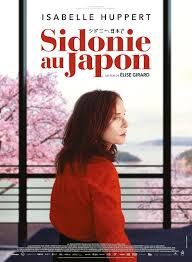
SIDONIE AU JAPON/ SIDONIE IN JAPAN
France, 2023, 95 minutes, Colour.
Isabelle Huppert, Tsuyoshi Ihara, August Diehl.
Directed by Elise Girard.
What happens when one visits a new country, experiences a different culture, brings one’s life experiences and discovers more about oneself and the need for change?
This is another star vehicle for Isabelle Huppert who has been top-lining films for almost 50 years, a great talent for embodying a variety of roles. This time she is a writer who has not written for some time but is invited by a Japanese publisher to come to Japan for a week to promote, for interviews about the Japanese translation of her first book.
We see her late at the airport, but the plane delayed, uncertainty as to whether she should venture to Japan or not. She does, somewhat bewildered on arrival, her luggage examined, then met by the publisher himself, quietly imposing figure, Kenzo (an dignified Tsuyoshi Ihara) and her unexpected journey begins.
Despite her education, she is very awkward in the Japanese situation, exemplified by her uncertainty about bowing (and her awkward bowing), the fact that Kenzo took her purse as well as her suitcase, and her wanting the purse back… There is also the language situation, her not having any Japanese, some conversations in French, sometimes having to resort to English.
We’re not quite sure what to make of Sidonie, perhaps wondering what we would do in our first visit to a different culture. But, she manages the interviews, the revelation that her writing was promoted by her late husband, and her stopping writing the result of grieving at his death. And, she gradually gets to know Kenzo, step-by-step his revealing something about himself, non-communication with his wife, being busy, a loner. They go on tours around Japan – very engaging for an audience wanting to see more of the country and culture – the cities, temples, coast, the islands.
But there is a lot more to Sidonie’s Japanese experience. In Japan, there is a culture of ghosts, ghostly presences, the dead in some kind of communion with the living. Suddenly, Sidonie, glimpses her husband, smiling (August Diehl). He keeps appearing and disappearing, communicating with her, tantalising, sad memories, some jokes with her even laughing and giggling. And, she wonders, and we wonder, what this could mean.
What it does mean, of course, is that Sidonie is able to come to terms with her husband’s death, her grief, its paralysing effect on her life, the fact that she was encouraged by him to write, that she loves to write, that she can begin again. There is the intimacy with Kenzo but could it be something permanent? Or not?.
This is the story of Sidonie in Japan, and it is an invitation for us to travel into the meaning of our own lives.
- The title focus? A portrait of Sidonie? Her experience of Japan, culture and traditions?
- The focus on Japan, audience expectations, awareness of Japanese culture, the landscapes, the cities, the population? The opening visuals of the city, the skyscrapers? Then the move into the towns, the countryside, the sea? The beauty of Japan, the landscapes, the water, islands? The meetings, temples, Buddhist traditions? The musical score, the piano themes, pensive, excited?
- The low-key of the film, pensive, meditative, gentle exploration of the awakening consciousness in Japan?
- At the Paris airport, the plane delayed, Sidonie uncertain? The flight, arrival in Japan, feeling lost, the guards and directions, the luggage? Her meeting with Kenzo, quiet, dark glasses, somewhat remote, carrying her luggage, taking her bag, her trotting afterwards, taking back the bag? The awkwardness in bowing, his advice to not bow? arrival in the hotel, settling in? The prospect of her book tour?
- Her background, the death of her parents in the accident, her survival and consciousness of this, her story of the meeting with Antoine, the bonding, love, marriage, the sadness of his death? His encouraging her writing, her first book, further writing, his death, not writing anymore? The Japanese translation of her first book, the invitation to Japan?
- Sidonie and her getting used to Japan, French, English, translations, the interviews with the journalist, the questions, her responses about her life, surviving with her writing? The signing of books? Admiration for her?
- The sudden appearance of Antoine, the searching for him, the mystery of the shop windows, the window open, the mess on the floor, her complaints to reception? His continued appearances, smiling, beginning to talk, their communication, her searching for him, not having dinner with Kenzo, wanting to go back to Antoine? The bonding, their talking, issues of ghosts and presents, death? His gradual fading? His mischievous behaviour, in the bath in the shower, and her giggling, the discussions with Kenzo, his explanation of ghosts in Japan, sense of presence?
- Her coming to terms with his presence, with his death, with her happiness, the dream at her kissing him and Kenzo?
- The travelling together, the islands, the exhilaration, the shared experiences, the bonding?
- Kenzo, gradually revealing his life alienation from his wife, his working, admiration for Sidonie, being with her, the travelling together, the long close-up on their hands, touching, communication, the use of a succession of stills for the sexual encounter?
- The effect on Sidonie, the six days in Japan, opening her eyes to different perspectives, cultures, spiritual beliefs, coming to terms with her life after death of Antoine, her beginning to write again?
- The farewell at the airport, her going back to France – and the last close-up of Kenzo at her departure?
99 Moons
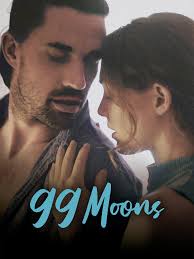
99 MOONS
Switzerland, 2022, 110 minutes, Colour.
Valentina D Pace, Dominik Fellmann, Danny Exnar.
Directed by Jan Gassmann..
A blogger wisely remarked that this film will get more favourable responses from film critics than from the average audience.
The 99 moons of the title indicates period of time over which the action takes place, 99 months, over 8 years…
In terms of plot, this is a story about a man and woman and the relationship, varying degrees, intensity, on-off, absences, encounter after a long time.
The writer-director has noted that this film came after his own personal experiences. At the beginning, it is a sex, sexual story, moving more into some personal encounters, touches of friendship, all the while erotic, but then it develops into relationship, some love, but the two people having completely different worlds and so separation.
While this is a film about a relationship and sexuality, it is also a story about power and influence. In fact, as the film begins, it is the woman who has the power. She is confident in her work, in disaster management and science at a world level. She hires men for violent and brief sexual encounters, his being masked, rough, and then she abruptly leaves. Later she encounters the man who works in a bar, serves is one socials. The same activity but it has more than effect on him than on her.
With the sexual beginnings, there is some kind of intimacy, some possibilities of friendship, he having the more needs – but her giving up an overseas appointment to be with him.
One of the difficulties for many audiences is that the two characters are quite unsympathetic, difficult to identify with.
And, so, the various moons pass. She continues her career but he finds a new life, active, out in the forest, working with his hands, some kind of fulfilment. Whether this means the relationship cannot last, it doesn’t.
The film focuses on the woman, her work, her colleagues, her competence, her marriage to one of the executives, the celebration – and the man appearing as a waiter. She makes contact, discovers he is married with a child, continuing his work with his hands.
And so, the question, will they meet again, make the sexual contact? They do – and the question of whether this is something of a new beginning or, more probably, it is the end.
The cinematography is very dark times, too dark – perhaps not enough moonlight!
Lone Wolf/ Australia
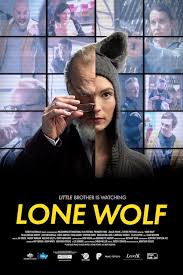
LONE WOLF
Australia, 2021, 103 minutes, Colour.
Hugo Weaving, Diana Glenn, Tilda Cobham-Hervey, Josh McConville, Stephen Curry, Marlon Williams, Chris Bunton, Lawrence Mooney, Tyler Coppin.
Directed by Jonathan Ogilvie.
Lone Wolf is an unusual Australian production, directed by Jonathan Ogilvie (The Tender Hook). Ogilvie has adapted Joseph Conrad’s story, The Secret Agent, which was filmed by Alfred Hitchcock in 1936 with the title, Sabotage. It was also filmed in 1996, with an 1890s setting, starring Bob Hoskins and Robin Williams.
Conrad’s novel has now been brought into the present, and the situation and location is an international meeting to be held in Melbourne. The basic outline of the novel is present, Conrad the manager of the shop (Josh McConville), pornographic books and tapes, the clientele, but his being involved with an anarchist group who meet at the shop and play cards, is contacted by anarchists to carry a bomb and to cause an upset but without any injuries. The anarchists know that he is also a police informer. He lives at his shop, Winnie his companion (Tilda Cobham-Hervey), and her younger brother with a disability, Stevie (Chris Bunton).
However, Ogilvie draws on the conventions of Found Footage film, surveillance cameras in the streets, the shop, cameras within the shop, plus footage from Stevie who likes to film, especially in the house but also on an excursion to the beach.
The key idea is that a parliamentarian and his police assistant (Hugo Weaving and Stephen Curry), approached by an officer who has a crisis of her own and presents them with an edited version of all the found footage, building up the story of Conrad, the contacts, his commission – and it seemed to go wrong and the discovery of his mutilated injured body.
However, there are further complications with Conrad – and, especially, with the Minister and his assistant, ambitions, cover-ups…
- Adapted from Joseph Conrad’s novel? Hitchcock’s 1936 version, Sabotage? Christopher Hampton’s 1996 version, Secret Agent, set in the 1890s?
- The background of anarchists, meetings, disruption of society? Ordinary citizens? Double agents?
- 21st-century politics, international meetings, finance, protests, sabotage?
- The Melbourne sitting, the vistas of the city, the shop and the streets, the interiors of the shop, the ministers office? The musical score?
- The visual style, the variation on Found Footage? Surveillance material, the placing of the cameras, government surveillance, police surveillance? Spying and privacy?
- The compilation of the video material, the editing, the narrative, the anarchy scenario, the report? Stevie and his camera, his footage, the beach, at home?
- Conrad, the shop, the books and videos, pornography? The range of customers? The group, their meeting at the house, playing cards, the range of characters, the priest? Winnie, her relationship with Conrad, her looking after Stevie, disability? His camera? Conrad and his visit to Sydney? The meetings, the contact from the anarchists, knowing that he was a double agent, wanting him to carry the bomb, the pressures, an explosion without fatalities? The drama in the house, with Winnie, with Stevie? The plan, the reporting of the explosion, the grim skeleton, presumed dead?
- The anarchists, the characters, their aims, the international meeting, lies, victims? Conrad as the Lone Wolf?
- His survival, the plan to leave, Winnie and Stevie? And his death?
- Contemporary protests, politics and anarchy?
Mountain, The/ te Maunga
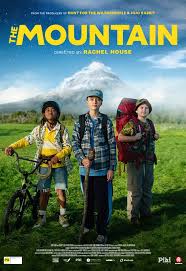
THE MOUNTAIN/ TE MAUNGA
New Zealand/ Aetearoa, 2024, 89 minutes, Colour.
Elizabeth Atkinson, Terrence Daniel, Reuben Francis, Byron Coll, Troy Kingi, Sukena Shah, Fern Sutherland.
Directed by Rachel House.
This is a film for youngsters, about youngsters.
The three characters who set out on a climb of Mount Taranaki (on the West Coast of the North Island of New Zealand) are 11 years old, as were the three children who acted here for the first time. And The Mountain will be a film that youngsters, probably between 9 and 13, will not only enjoy but find both interesting and entertaining, well worth talking about.
We are introduced to the three, a girl and two boys. The girl, Sam (Elizabeth Atkinson), is doing some martial arts moves but we soon find that she is in hospital, has cancer, is fussed over by her mother, but has never known her father. Then there is a chubby boy, Mallory (Reuben Francis) doing imaginary strumming. He is a sad boy, his father somewhat withdrawn at the death of his wife, and Mallory grieving for his mother. Then they encounter a Maori boy, Bronco (Terrence Daniel, with his bicycle, feeling rebellious towards his father a security guard at the hospital.
Sam’s great desire is to achieve something, climb to the top of Mount Taranaki, not quite aware of her Maori background, but moved by the mountain and its mystery, a religious and psychological link, parenting mountains. In fact, as the three come together and set out on the venture, Bronco, proud of his Maori heritage, speaking the language, knowing the traditions, a believer in earth harmony, devout in his respect for his heritage, helps the audience appreciate what is happening and what was a venture, then an adventure, now a quest.
The young audience can identify with these three characters, unknown to each other at first, steps in bonding, help in danger in crossing a bridge and one falling into the river, making decisions to camp out, communications with their parents, the decision whether they can get to the top or not.
While the parents are supporting characters here, they are quite well drawn, the over-loving mother, her daughter’s crisis in wanting to know something of her father, Bronco’s big father, a nice man but not realising how he has neglected his son, Mallory’s father caught up in grief, failing to appreciate his son’s sadness and emotional needs. And there is an enjoyably deadpan friend character, Peachy.
Which means then that the Mountain is a family film in the best sense.
The local photography has moments of beauty, the mystery of the mountain. The emphasis on the Maori heritage is explicit, opening up the culture to a wider audience. And, there is a common sensed approach as to how the quest finishes, real, rather than romanticised.
And a compliment to actress, Rachel House, seen in many New Zealand and Australian film and television productions, always down-to-earth with a touch of humour. This is her first film as director, has adapted a story which originally was three Pakaha /white children, incorporating the strong Maori elements.
Because senior primary school students would enjoy this film and find it helpful to discuss, Pixar’s original Inside Out came to mind, that enjoyable film which dramatised and personalised children’s emotions. And they are right here on screen, Joy, Sadness, Anger, Fear. It would be very interesting to hear teachers and children talking about the Inside one emotions as they see them in the three children in The Mountain.
- The title, Mount Taranaki, the Maori title, a goal for a quest, the parenting Maori tradition of mountains?
- The location photography, the town, homes, hospital, outside the town, the beauty of the mountain, night and day, clouds and sun, the mountainside and the track? The musical score? (And the popular song themes?)
- The target audience, youngsters, especially 9-13, for parents and appreciation of children, for teachers, for discussions and values?
- The introduction to Sam, martial arts, 11, hospital, the other patients, cancer, her friendship with Peachy, their discussions? Peachy deadpan? The protective mother? The absent father and the mystery? Her being drawn to the Mountain, wanting to climb it, something interior in her heart, her need to articulate it? The decision to climb the mountain, not to tell her mother, plan with Peachy, the escape? The balloons?
- The introduction to Mallory, air guitar, chubby, 11, his mother’s death and his grief, communicating with her, his father, sad, the photo, weeping? Her love for mountain climbing, his wanting to climb with his father? His father’s reaction to him, putting him down? Going to school?
- The introduction to Bronco, Maori, relationship with his father, father seen on the roof, security guard, while Sam and Peachy were trying to elude him? Bronco and his bike? Feeling his father neglected him? The importance of the environment and rubbish? Wonders with nature? Speaking the Maori language, knowing the background, explaining the mystical elements?
- Their coinciding, Mallory and Sam’s list, the food, the tents…? Their going together?
- The bonding, misunderstandings, the episode with the bridge, Mallory falling into the water, unable to swim, dog paddling, Sam’s important stick, Bronco with the lassoo? Eating, Bronco and his prayer? The fog, the path, the parents coming, going off track, camping for the night, Mallory and Bronco talking, their concern about Sam, whether she could go on? Her injury? Her determination, continuing, the two boys deciding to form a barrier, that she would not pass? The clouds passing, the vision of the top of the mountain, satisfying Sam?
- The parents, overprotective mother, not revealing the father? Bronco’s father, security guard, the clashes, Bronco feeling neglected? His concern? Mallory’s father, concern, Peachy trying to avoid the search, their travelling together, phone communication, their not being in the hut? Their being reassured, the continued search? Finding the three, and the apologies from each parent?
- Sam back in hospital, accepting her illness, the possibility of her death, the Maori background? Mallory with his father? Bronco reconciled with his father?
- An authentic exploration of three children, their sadness, their hopes, relationships with parents, parents and reconciliation with their children?
Murder is Easy/ 2023
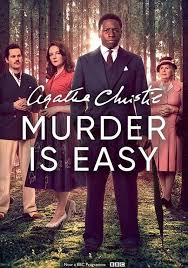
MURDER IS EASY
UK, 2023, 117 minutes, Colour.
David Jonsson, Matthew Baynton, Morfydd Clark, Penelope Wilton, Douglas Henshaw, Mark Bonnar, Sinead Matthews, Jon Pointing, Tom Riley.
Directed by Meena Gaur.
Looking at the many negative comments on the IMDb, one wonders whether the choice of the Nigerian as the central character set up prejudicial reactions to the film. On the other hand, the many Agatha Christie fans who like her stories and appreciate different interpretations, have enjoyed it.
In checking on the Wikipedia synopsis of Agatha Christie’s 1939 novel, this version keeps very close to the characters and the plot developments. It had been filmed in 1982 with Bill Bixby as the investigator, Lesley Anne Down as his associate, Helen Hayes as the old lady, Miss Marple like, who observes the murders – and Olivia Haviland as the murderer.
The cast here is not so well-known. In changing the investigator (who in the original returns from overseas postings) to a Nigerian, it has something of the same effect. Although, this is 1954 and there are some immediate reactions to his black presence.
The investigator encounters a Miss Marple like character on a train, played by Penelope Wilton, who tells him of murders in her village (more dangerous than St Mary Mead) and then she herself is murdered. He travels to the town, encounters a young woman at coroner’s sessions, judged accidental deaths, but she is engaged to a self-made peer who has ambitions to transform his village into a modern development.
He seems to be the obvious murderer, plenty of motives and, later, revealed to be fanatical in his attitude towards anyone who opposes him, working with God, so he says, to strike down his enemies. And, with this explanation, it might seem that Agatha Christie has decided that the obvious person is the killer. However, there is a twist and after the detailed explanation about how the villain might have committed all the murders, there are the visuals scenes of the actual killer and the actual murders, building up to a confrontation and rescue.
The end of the novel, the couple is married – not quite the easy romantic fix in this one!
- The popularity of Agatha Christie novels? This one from 1939 but set in 1954, the Nigerian character, the major and his overseas service, minister and his service in India and his Indian wife, comments about Nigerian independence, British rule, Partition?
- 1954, the scenes in London, the streets and the betting? The train ride, the village, the names, accommodation, shops and pubs, the mansion, tennis, doctor’s office…? Real feel? The musical score?
- Luke Fitzwilliam, the opening, his nightmare, the fire and chase, the knife? This recurring? And the finale with the knife? His background in Nigeria, coming to England, political service, the job in Whitehall? The encounter with Miss Pinkerton, friendly, the story of the murders, the betting, his placing the bet, the race and her winnings, her death? His discussion with his friends, their taunting him about his job, independent in Nigeria, is very Britishness?
- His decision to investigate the situation, arrival, the sessions, accidental deaths, the encounter with Bridget? Some reactions to his being black? Accommodation? No vacancies – giving the money, vacancies? The invitation to the reception? Bridget and her engagement to Lord Whitfield? His manner, the back story, the development? His deals during the war, acquiring the peerage?
- The story of the murders, the Weir, falling from the building? The further deaths, the minister and his attack and collapse, his later death? The maid, the poison? The outspoken objector at the hearings and his death? The doctor, under suspicion, his collapse and fall at the engagement party?
- The visit to the poor return, the hostility in the pub, the change, friendship, the women at the engagement party, engaging them for the expose of the murderer?
- Fitzwilliam and his discussions with Bridget, his investigations, the experience at the Weir with the water, the rescue? His presence at the maid’s death? The later suspicion of him by the police? His involvement with Lord Whitfield, the tennis game, the attraction to Bridget? The engagement party? Lord Whitfield’s reaction?
- The range of suspects, the doctor and his medication, the revelation of his eugenic books and ideas, the Indian wife and her daughter? Rose and her attraction to the doctor, her being shocked at the books? The doctor and his opportunities, suspicious behaviour, playing up to Lord Whitfield? The surprise of his collapse and death?
- The major, walking the dog, or haughty towards Fitzwilliam, Is Speaking the language, finding the right time, collaboration, the information from Scotland Yard?
- The minister, his arguments against Lord Whitfield and the development, his Indian wife, daughter? The funeral?
- Miss Waynefleet, in the background, the death of her maid? Her back story, emerging, as stories about Lord Whitfield, the buildup of the case against Lord Whitfield, his outbursts about God being on his side, threatening Fitzwilliam?
- Investigation, the discussions, the clues toured Lord Whitfield, the realisation about Miss Waynefleet, her drugging Bridget, the walk, the talk, attempting to kill her, the rescue?
- The final solution, Fitzwilliam and his decision to return to Nigeria for independence, and the attraction for Bridget?
Your Lucky Day
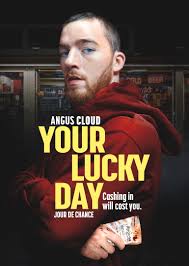
YOUR LUCKY DAY
US, 2023, 89 minutes, Colour.
Angus Cloud, Elliot Knight, Jessica Garza, Sterling Beaumon, Moussa Hossain Krais,, Spencer Garrett.
Directed by Dan Brown.
Your Lucky Day is a brief gritty thriller. Its action is confined over a couple of hours one evening. And the action is generally confined to the interiors of a takeaway store. It was written and directed by Dan Brown (not of the da Vinci Code).
The basis of the story is an ordinary customer winning a lottery worth $156 million. In the shop there is the manager pleased to verify the winning as well as a young couple, the wife pregnant.
However, we have seen the central character, Sterling (Angus Cloud who then died in real life of a drug overdose at age 25), in a drug deal gone wrong and his being ambushed and robbed. He intends to rob the store, wants to get the lottery ticket, is interrupted by a patrolling policeman, the shooting, the owner of the ticket being killed, the policeman wounded.
This sets a situation for moral dilemma, moral choices, self-preservation, the store owner checking the surveillance cameras, the planning for an explanation of who owned the ticket and its claims, the possibility of dividing the winnings amongst the group.
The wounded policeman contacts his father and a group of fellow officers who are in fact are corrupt. They then come for the ticket, a siege, deaths, the husband away from the store driving the bodies away in a vehicle, the pregnant wife still in the store – but then showing all kinds of shrewdness, physical prowess, sending off the attackers.
Some more deaths, the police, and a final plan for the mastermind of the police with the young couple to divide the winnings, claim that the ticket was theirs and a generous dividing of the money with the policeman who rescued them.
During the final credits there is a brief sequence where a security guard approaches the vehicle with the bodies…
A contemporary parable about greed, violence, truth and lies, and the undermining of integrity.
- The irony of the title? Winning the lottery? Consequences? Greed, violence, manipulation?
- The setting, the confined time, the shop, action in the shop, sequences outside, Abraham and the car and the bodies, the police on watch, the security guard? The claustrophobia of being confined to the shop? The musical score?
- The tone of the opening, Sterling and the drug deal, the young man, the setup, his being robbed? His going into the shop, intending to rob it?
- Those in the store, at the counter, Abraham and the pregnant Ana Marlene, Mr Laird, his manner, the lottery ticket, checking it out, his joy at winning? The response of the others?
- Sterling, his action, the confrontation with Laird, the struggle for the ticket? Cody, seeing the situation, entering, his gun, the shooting, Laird dead, Cody wounded?
- The situation, Sterling and his behaviour, the setup, the issue of the surveillance footage, Mia, using his wits? The reaction of the couple? The threats, the uncertainties?
- The power of the ticket, the greed, one $156 million, the dealings, the plans, as brother-in-law coming in, the danger, getting rid of him? The security guard? Planning the setup? Moving the bodies? Abraham persuaded to drive the bodies away? Ana Marlene’s reaction? Amir, the plans, the dividing of the money?
- Cody, wounded, phoning his father, his father and his friends, the police, yet corrupt? The plan about the ticket?
- The arrival of the police, confrontations, the death of year? The death of Sterling? Ana Marlene, her reactions, the elaboration of background, her skills, outwitting the attackers, the deaths? Her being captured? Her singing The Bells of St Mary’s, Abraham hearing it, his return?
- The taking of Abraham, the capture of Ana Marlene, the mastermind waiting in the car, Cody, his reactions, the death of his father?
- Ana Marlene using her wits, the final plan, the ticket, that the couple had the ticket, dividing it with the policeman who rescued them?
- The policeman and his TV interview, the village generosity of the couple? The happy baby? The future?
- In the credits, somebody moving up to the car with the bodies?
- The theme of greed, opportunism, personal integrity?
MoviePass, MovieCrash
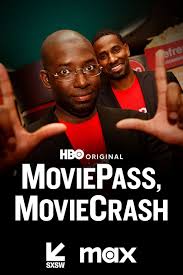
MOVIEPASS, MOVIECRASH
US, 2024, 96 minutes, Colour.
Directed by Muta'Ali.
A documentary which will be of interest to moviegoers.
There are all kinds of financial incentives to entice audiences to come to the movies, special low prices on a particular day, membership of exhibition companies for discounts…
This film is about a plan set up by two African-American businessmen/idealists, Stacy Spikes and Hamet Watt. The plan was for subscribers to invest $9.60 a month and receive a pass which enabled them to see a film of a day anywhere, anytime. They acted on their plan, Spikes having a background in movie business and promotion.
However, it needed many subscribers. Two white businessmen became interested, Mitch Lowe and Ted Farnsworth, practically taking over the company, then ousting the founders, claiming that they originated the idea and company, all kinds of business schemes and extravagant promotion events, and the failure of the company, the rest of Lowe and Farnsworth. The documentary ends with the information about their trials and ongoing appeals, the fate of the two founders, the publication of Spikes’ book, the getting control again of MoviePass but the question of whether it could be financially viable, financially successful.
Which means then that this is a story of venture capitalism, risk-taking, exploitation, the vanity of the venture capitalists, investing in quite a number of companies, failures but reinvestment, extravagant lifestyles until they are caught up with.
The film relies on documentary footage of the time, the moviegoers, news items about the capitalists…
And talking heads, especially Stacy Spikes, bespectacled, quiet, convincing in his speaking to camera and recounting the enthusiasm, the hardships, the disillusionment. There are also interviews with Hamet Watt. As regards the exploiters, there are quite some interviews with Mitch Lowe, talking about his intentions, his background, financial faces, the breakup of his marriage, excuses… And then we find out that the interviews were filmed just before the warrant for his arrest.
As regards Ted Farnsworth, no interviews, but plenty of video material with his self-promotion, his contacts, the extravagant shows, enjoying the life of the rich and famous.
Of interest to those who want to explore capitalist ventures, risk-taking, financing. And for those who really would like to have some kind of MoviePass so that they could go or often to the movies they love.
Paris - a pre-Olympics glimpse, John Walker MSC
Paris - a pre-Olympics glimpse, John Walker MSC
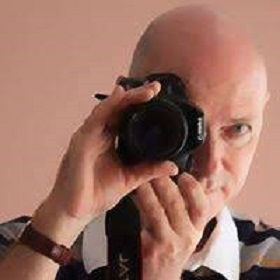
John writes: Feeling chuffed! Received notice that one of my favourite photos shot in Paris will be exhibited in Chicago in July. I was visiting friends in Paris at the end of my sabbatical in 2012, and one of my favourite vantage points was from the terrace of the Palais de Chaillot overlooking the Eiffel Tower.

John also posted this one on his Facebook page, a photo perhaps he wished he took – of the Eiffel Tower, of course.
